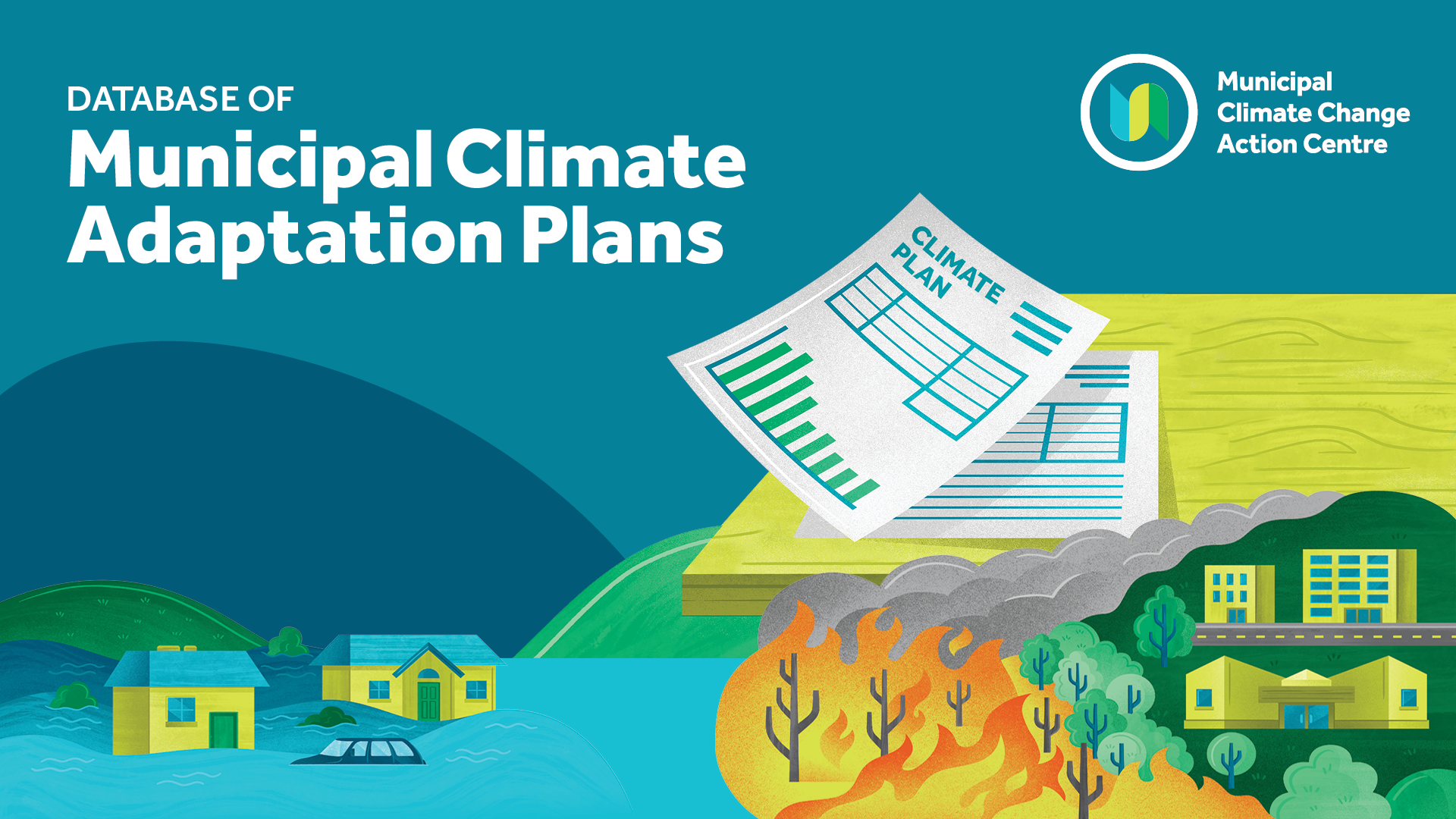The CRCB Program closed in December 2024. This page is no longer being updated.
Climate adaptation and resilience plans are community-specific assessments that evaluate the impacts that extreme climate events, like wildfires and floods, may have on communities and natural environments. They also identify actions for local governments to increase their resilience to a changing climate.
The Database of Municipal Climate Adaptation Plans brought together all publicly available municipal climate adaptation and resilience plans and climate risk and vulnerability assessments that were developed by municipalities in Alberta as of July 2024.
Use this resource to learn about the variety of approaches to climate adaptation planning underway in Alberta. This database helps identify opportunities for staff to connect with peer and neighbouring municipalities that are advancing climate adaptation in their communities.
About the Plans
These plans outline regional climate trends and projected environmental changes specific to a local context. Adaptation planning typically takes local governments through the following iterative process:
- Defining the context and scope of local climate change impacts
- Assessing risks and opportunities, based on the likelihood and consequences of climate change impacts
- Formulating adaptation actions to increase resilience to these risks and maximize opportunities
- Preparing to implement adaptation actions and monitor progress
The database provides a snapshot of the following aspects of these adaptation plans:
- Scope
- Methodology used to assess risks and identify adaptation actions
- Number and description of priority climate risks
- Number and description of climate opportunities
- Number of adaptation actions
- Social equity lens – to what extent does the plan consider disproportionate impacts to equity-deserving groups?
- Community engagement – to what extent does the plan consider community engagement in its design and delivery?
- Implementation – to what extent does the plan consider implementation of actions?
Ranging in scope, these plans may be sector-specific (such as the Strathcona County Astotin Creek Resiliency Action Plan); focused on corporate assets and services (such as the City of Leduc Weather and Climate Readiness Plan); or assess community-wide impacts to infrastructure, private property, people and communities, the natural environment, and the local economy (such as the Town of Okotoks Climate Resilience Action Plan).
These plans follow several approaches to assessing climate risks, including the Public Infrastructure Engineering Vulnerability Committee (PIEVC) High Level Screening Guide and the Climate Resilience Express (developed by All One Sky Foundation and the Municipal Climate Change Action Centre).
All Plans
-
Sylvan Lake Climate Resilience Action Plan
The Town of Sylvan Lake, through the preparation of this Action Plan, is taking steps towards a safe, prosperous and resilient future. The Action Plan identifies several anticipatory measures to…
-
Summer Village of Bondiss Climate Adaptation Plan
In partnership with All One Sky Foundation, the Summer Village of Bondiss has developed this Climate Adaptation Plan for the community. This Plan serves as the overarching document that guides…
-
Sturgeon County Climate Adaptation Action Plan
The impacts of climate change are already affecting Sturgeon County and will be felt more strongly in the coming decades. Creating a Climate Adaptation Action Plan (CAAP) helps Sturgeon County’s…
-
Climate Change Adaptation Action Plan
Developed through in-depth collaboration with community members, staff, Council, and stakeholders, this ‘made in High River, for High River’ Climate Change Adaptation Action Plan will serve as a guide and…
-
Lacombe County Climate Resilence Action Plan
Lacombe County, through the preparation of this Action Plan, is taking steps towards a safe, prosperous and resilient future. The Action Plan identifies several anticipatory measures to manage priority risks…
-
Climate Risk Assessment Report
The Climate Risk Assessment examines the impacts of climate change on Jasper’s localized built, natural, and social/cultural systems. The assessment generally looks out to a future, 30-year time period centered…
-
Okotoks Climate Resilience Action Plan
Okotoks, through the preparation of this Action Plan, is taking steps towards a safe, prosperous and resilient future. The Action Plan identifies several anticipatory measures to manage priority risks and…
-
Weather and Climate Readiness Plan
Identifies priority risks to Leduc’s corporate services, resulting from weather and climate hazards. The severity of risk is judged by the extent to which it affects public health and safety,…
-
Mackenzie County Climate Resilience Action Plan
Mackenzie County, through the preparation of this Action Plan, is taking steps towards a safe, prosperous and resilient future. The Action Plan identifies a number of anticipatory measures to manage…
-
Climate Risk Assessment Report
About the Plans
These plans outline regional climate trends and projected environmental changes specific to a local context. Adaptation planning typically takes local governments through the following iterative process:
- Defining the context and scope of local climate change impacts
- Assessing risks and opportunities, based on the likelihood and consequences of climate change impacts
- Formulating adaptation actions to increase resilience to these risks and maximize opportunities
- Preparing to implement adaptation actions and monitor progress
The Database of Municipal Climate Adaptation Plans summarizes the current state of municipal climate adaptation planning in Alberta and makes these publicly available plans accessible to local governments and adaptation practitioners, enabling others to learn how peer or neighbouring municipalities are approaching climate adaptation planning. The database provides a snapshot of the following aspects of these adaptation plans:
- Scope
- Methodology used to assess risks and identify adaptation actions
- Number and description of priority climate risks
- Number and description of climate opportunities
- Number of adaptation actions
- Social equity lens – To what extent does the plan consider disproportionate impacts to equity-deserving groups?
- Community engagement – To what extent does the plan consider community engagement in its design and delivery?
- Implementation – To what extent does the plan consider implementation of actions?
Ranging in scope, these plans may be sector-specific (such as the Strathcona County Astotin Creek Resiliency Action Plan); focused on corporate assets and services (such as the City of Leduc Weather and Climate Readiness Plan); or assess community-wide impacts to infrastructure, private property, people and communities, the natural environment, and the local economy (such as the Town of Okotoks Climate Resilience Action Plan).
These plans follow several approaches to assessing climate risks, including the Public Infrastructure Engineering Vulnerability Committee (PIEVC) High Level Screening Guide and the Climate Resilience Express (developed by All One Sky Foundation and the Municipal Climate Change Action Centre).


You must be logged in to post a comment.